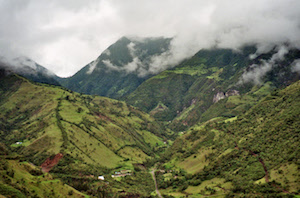
The western area of Ecuador is one of the places in the world where biodiversity is at highest risk. In a relatively small area (about 80,000 km2), western Ecuador has various small, isolated, and unique forest types, a high percentage of endemic species, and has been severely deforested.
More than 95% of semi-deciduous forests and wetlands of the central and southern parts of the coast have disappeared because the climate and soils of these areas are particularly suitable for intensive agriculture. Today, these fertile soils are mainly used for large scale, export-oriented production of bananas, cocoa and palm oil, rather than subsistence farming on a small scale.
Forest patches outside protected areas are especially at risk, as well as being virtually unknown and undocumented. It is vital that these forests are studied, samples are collected, and conservation efforts are made.
Forest Fragments Fellowships are administered by the Tropical Resources Institute. Applicants should apply for a TRI Endowment Fellowship in the Student Grants Database and select “Forest Fragments Fellowship” when prompted.
Eligibility requirements for this fellowship are the same as for other TRI Fellowships with the addition that applicants should have advanced Spanish language skills and be able to live and work in a remote rural setting. Funding is available up to $5,000 for one or two fellows per year.
Project ideas include: mapping forest fragments, biodiversity and ecology of forest fragments (trees, birds, insects, primates, herpetofauna), impact of the 'Sociobosque' reforestation program, human ecology and resource use, etc.
Applicants for the Forest Fragments Fellowship are strongly encouraged to meet with Simon Queenborough prior to submitting their applications to the Tropical Resources Institute.